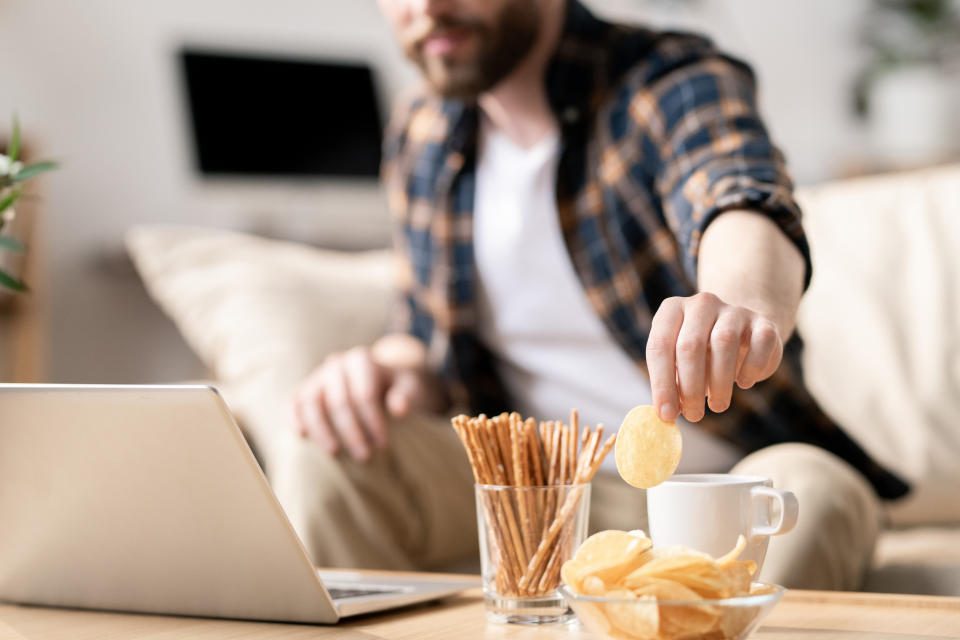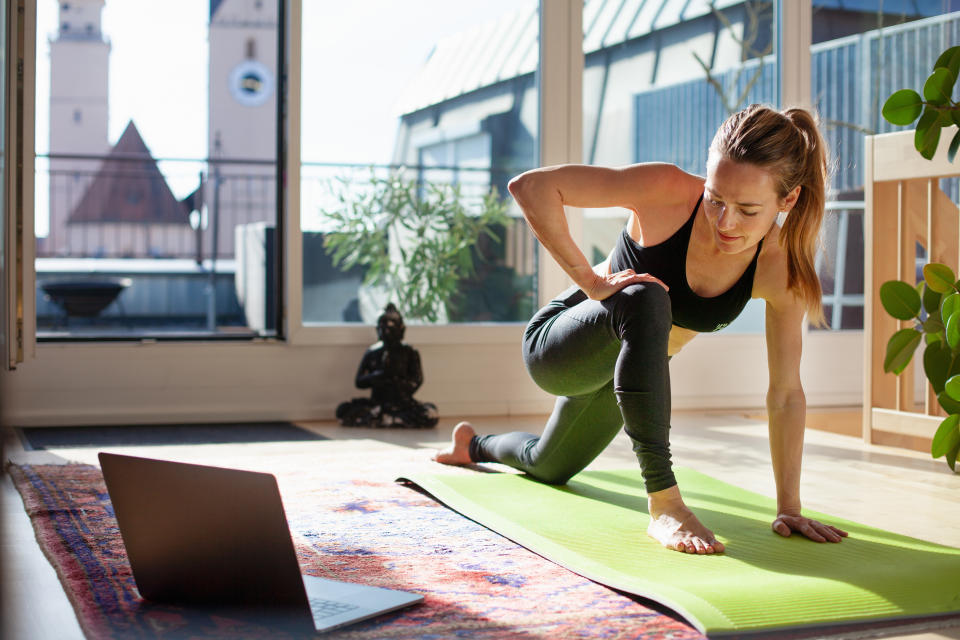Developed a bad iso-habit? Here's how to fix it
We’re finally coming out of isolation and while the shift to a somewhat more normal routine is no doubt welcomed, a few of us may be finding it difficult to shake some of the less than ideal habits we’ve formed while spending more time at home.
Whether it’s that extra hour in bed, staying up too late, snacking 30 times a day, or that extra glass of wine (or two) after dinner, now is the time to break any poor iso habits, according to Dr Mira Klein - particularly since we’ve hit winter.

“First and foremost, this isn’t to shame anyone for developing bad habits during iso,” Dr Klein tells Yahoo Lifestyle.
“It’s different for every individual but that doesn’t mean we can’t fix these habits. With lockdown measures easing up further, normality can start to resume, and new, healthier, habits can be formed.”
Dr Klein, female general practitioner at InstantScripts, reveals there’s been an influx in the number of people eating more, drinking more and moving less, which has led to a worryingly sharp incline in mental health related consults too.
“Understandably, it’s been harder to get out and about to exercise and with takeaways at our fingertips and people rediscovering hobbies such as baking, it’s created a recipe for weight gain - quite literally,” she tells us, adding 22 per cent of people are eating more snack foods.
On top of this 1 in 5 Australians have purchased more alcohol than usual during the coronavirus pandemic, and of those 70 per cent are drinking more of it than normal, and 33 per cent are now drinking daily.

“There’s a combination of factors that have led to these less healthy lifestyles, but falling out of our regular routines is the biggest culprit,” Dr Klein explains.
And now that the weather has officially cooled off she says it’s crucial people focus on good health.
“We’re now firmly moving into the winter months when, by default, sickness rates are higher due to the cold weather and the spreading of highly contagious viruses such as the flu,” she says. “And, as we work hard as a nation to avoid a second wave of COVID-reinfections, good physical health has never been more paramount.”
Fitbit Stress Expert, Dr Suzy Green, agrees now is the perfect time to rethink your health, fitness and wellbeing regime. Together Dr Green and Dr Klein have got some tips to help us do just that.

Take your time
Dr Klein says it can take forty days to form a habit, and Dr Green agrees looking at the next three months is a good place to start.
“What would your ideal week look like? What are the non-negotiables in your week to ensure improved or sustained health, fitness and overall wellbeing?” Dr Green suggests as some things to think about.
Let go of disappointment
As we come out of this period of isolation it’s important that we build on these positive habits and continue to take a proactive approach to our health.
“It’s also a good idea to regroup at this time and let go of any disappointment you might have for not being as active as you would have liked,” Dr Green adds.
Set clear goals
Goal setting is a great way to develop healthy habits, whether this be for exercise, sleep, nutrition or stress.
“Just as you schedule exercise into your day, you should also make time to be mindful and engage in activities such as meditation or breathing sessions,” Dr Green says.
Don’t forget your mental health
As it can be easy to forget, mental health is just as important as our physical health.
“However, what is undeniable is the profound impact this pandemic has had on our mental health. With thousands of Australians losing their jobs and many of us not seeing loved ones for extended period of time, some of us are struggling with range of emotions including stress, anger and fear.”

Iso leads to positive changes
Both Dr Klein and Dr Green however stress that it hasn’t all been bad. On a positive note, Dr Klein has seen a large increase in the number of Aussies contacting her to quit smoking - particularly males.
“A large trigger for this was the fact that smokers who contracted COVID-19 had a much higher death rate which really drove home the harmful effects of smoking,” she explains.
And Dr Green says that while many may think they have been less active, we’ve been much more mindful of moving our bodies.
“Whilst you might think you’ve not been as active in iso, new data from Fitbit shows Australians have improved their sleep duration and active minutes during this period,” she reveals.
“That is, whilst many of us may have seen a decline in step count due to staying home more, we are carving out more time to exercise with intention.”
Got a story tip or just want to get in touch? Email us at lifestyle.tips@verizonmedia.com.

 Yahoo Lifestyle
Yahoo Lifestyle 



